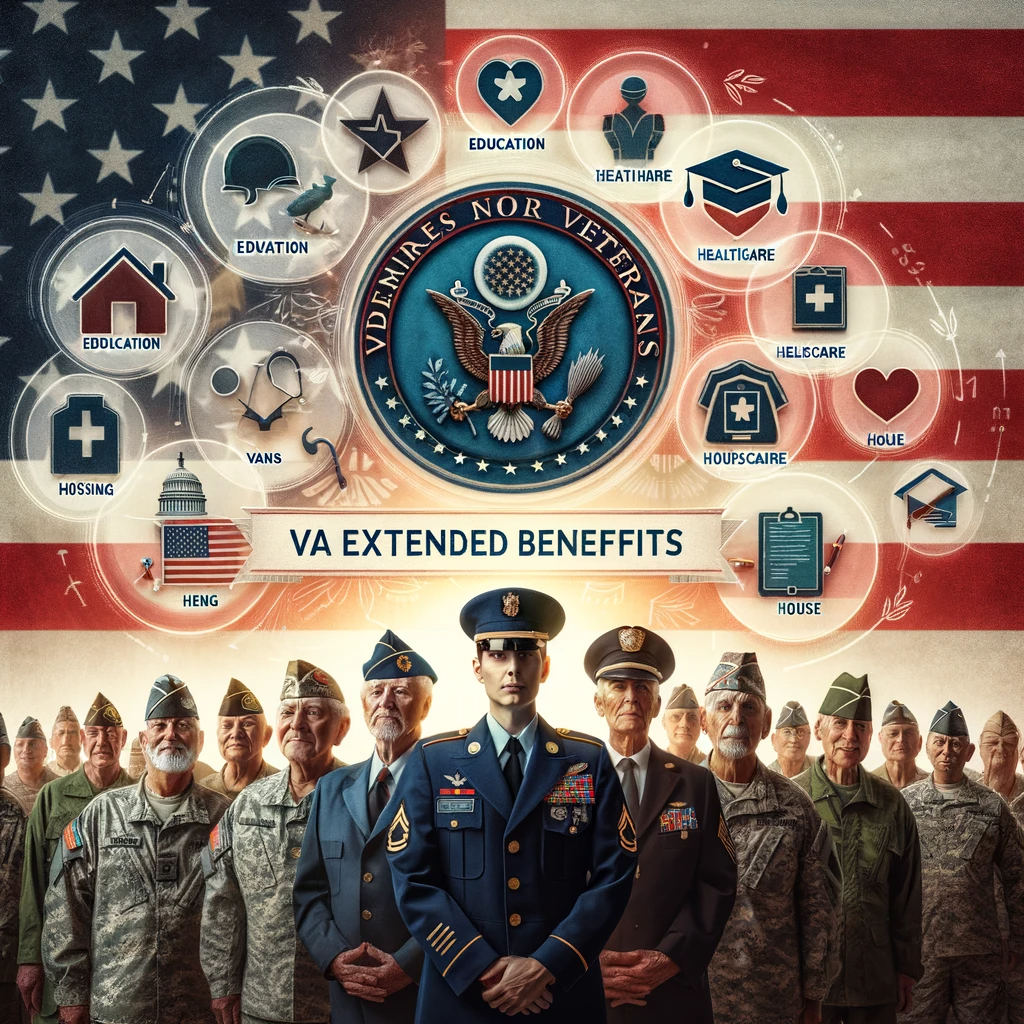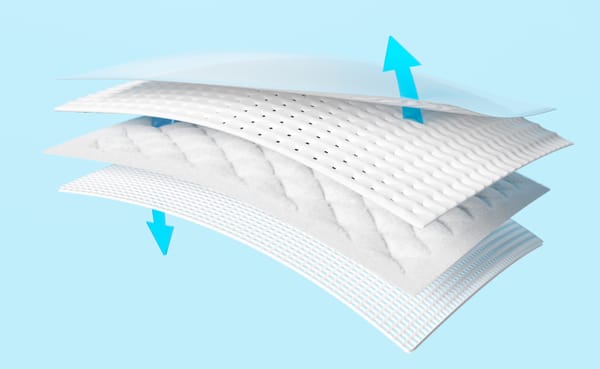A Comprehensive Guide to VA Benefits for Seniors: Navigating Aid, Attendance, and Long-Term Care
Explore the array of VA extended benefits for veterans, covering vocational rehabilitation, specialized healthcare, housing assistance, and bereavement counseling. Learn how these benefits support veterans' diverse needs beyond basic healthcare and pensions

The world of Veterans Affairs (VA) benefits can be complex and often daunting, especially for senior veterans who have bravely served their country. Understanding VA benefits, including aid and attendance, and long-term care benefits, is crucial for accessing the support and resources deserved. This comprehensive guide delves into various VA programs, outlines how to apply for them, and explains why the availability of benefits can differ among veterans.
Understanding VA Benefits for Seniors
VA benefits for seniors encompass a range of services and support, designed to honor veterans' service and aid them in their later years. These benefits include healthcare, financial assistance, and support services, which are critical for many senior veterans.
Key Programs Under VA Benefits
- Health Care Benefits: These include hospital, outpatient medical, dental, pharmacy, and prosthetic services, as well as nursing home and domiciliary care.
- Disability Compensation: For veterans with disabilities connected to their service.
- Pension Programs: Including the Veterans Pension and Survivors Pension programs.
Aid and Attendance: A Special Care Benefit
One significant component of VA benefits is the Aid and Attendance benefit. This program provides financial aid to eligible veterans and surviving spouses who require assistance with daily activities. It's a supplement to the VA pension, designed to help those who need regular aid from another person.
Eligibility for Aid and Attendance
- Medical Requirement: The veteran or spouse must require help with activities like bathing, dressing, or feeding.
- Financial Requirement: Based on income and net worth limits set by Congress.
VA Long-Term Care Benefits
VA long-term care benefits are designed to help senior veterans with chronic illnesses, disabilities, or aging-related conditions. These benefits cover a range of services, including:
- Nursing Homes: VA benefits cover care in VA nursing homes and private facilities.
- Home Health Care: Skilled services such as nursing and therapy.
- Adult Day Health Care: A part-time program for veterans who require care and supervision.
How to Apply for VA Benefits
Applying for VA benefits involves several steps:
- Gather Necessary Documentation: This includes discharge or separation papers (DD214 or equivalent), financial documents, and medical evidence.
- Complete the Application: Fill out the required VA forms, available on the VA website or at VA offices.
- Submit the Application: This can be done online, by mail, or in person at a VA office.
- Await Decision: The VA reviews the application and makes a decision. If denied, veterans have the right to appeal.
Navigating the VA System
Navigating the VA benefits system can be challenging. Here are some tips:
- Seek Assistance: Veterans Service Organizations (VSOs) can help with applications and provide valuable advice.
- Stay Informed: Keep up to date with the latest information on VA benefits, as rules and eligibility requirements can change.
- Be Persistent: The process can be lengthy and sometimes frustrating. Persistence is key.
Why Availability of Benefits Differs
The availability of VA benefits can vary due to several factors:
- Service Requirements: Benefits depend on the length of service, the period of service, and the nature of the discharge.
- Financial Thresholds: Income and net worth can affect eligibility for certain benefits like pensions and Aid and Attendance.
- Health and Disability Status: The level of disability or health needs can influence the type and extent of benefits available.
VA benefits for seniors offer crucial support for those who have served. Understanding these benefits, including Aid and Attendance and long-term care, is vital for accessing the assistance deserved. While the process can be complex, the right information and support can make it more navigable. Veterans and their families are encouraged to explore these benefits and seek the support they need to live a comfortable and dignified life in their senior years.
VA Benefits for Surviving Spouses: A Detailed Overview
The loss of a veteran spouse can be an emotionally challenging time for surviving spouses. Fortunately, the Department of Veterans Affairs (VA) provides various benefits to assist surviving spouses, acknowledging the sacrifices made by veterans and their families. This article outlines the key VA benefits available to surviving spouses, detailing eligibility criteria and application processes.
Dependency and Indemnity Compensation (DIC)
- What It Is: DIC is a tax-free monetary benefit paid to eligible surviving spouses of service members who died in the line of duty or as a result of a service-related injury or disease.
- Eligibility: The spouse must have been married to a service member who died while on active duty, active duty for training, or inactive duty training, or married to a veteran who died from service-connected disabilities.
- How to Apply: Applications can be submitted online, by mail, or in person at a VA office. Necessary documents include the veteran's death certificate and marriage certificate.
Survivors Pension
- What It Is: Also known as the Death Pension, this benefit is a needs-based, tax-free monetary benefit for low-income surviving spouses of deceased veterans with wartime service.
- Eligibility: The deceased veteran must have met certain service conditions, and the surviving spouse's income and net worth must meet specified limits.
- Application Process: Similar to DIC, the application includes submitting relevant documents proving marriage and the veteran's service and death.
Aid and Attendance and Housebound Benefits
- What They Are: These are increased monthly pension amounts for qualifying surviving spouses who require help with daily activities or are housebound.
- Eligibility: The surviving spouse must be eligible for the basic Survivors Pension and require aid and attendance or be confined to their home.
- Application: Involves providing medical evidence of the need for aid and attendance or housebound status.
Education and Training
- What It Is: The Survivors' and Dependents' Educational Assistance (DEA) program offers education and training opportunities to eligible dependents of veterans who are permanently and totally disabled due to a service-related condition, or who died while on active duty or as a result of a service-related condition.
- Eligibility: The program typically provides up to 36 months of education benefits.
- Application: Applications can be submitted through the VA website or by mail.
Home Loan Guaranty
- What It Is: Surviving spouses may be eligible for VA home loan guaranty benefits, including refinancing of a loan.
- Eligibility: Applies to spouses of veterans who died on active duty or as a result of a service-connected disability.
- Application: Requires a Certificate of Eligibility (COE), which can be applied for through the VA.
Health Care
- What It Is: The Civilian Health and Medical Program of the Department of Veterans Affairs (CHAMPVA) provides health care benefits to eligible surviving spouses.
- Eligibility: Available to spouses who do not qualify for TRICARE and where the veteran was either totally disabled due to a service-connected disability at the time of death or died of a service-connected disability.
- Application: Involves submitting an application package to the VA’s CHAMPVA center.
Navigating VA benefits as a surviving spouse can be complex, but these benefits are vital for ensuring the well-being of those who have lost their partners in service to their country. It is advisable to seek assistance from Veterans Service Organizations or VA representatives when applying for these benefits to streamline the process and ensure all entitlements are fully utilized.
VA Extended Benefits Overview
VA extended benefits encompass a variety of programs designed to offer additional support to veterans. These benefits cater to specific needs, including education, long-term care, and specialized medical care.
1. Vocational Rehabilitation and Employment (VR&E) Benefits
- Description: This program assists veterans with service-connected disabilities to prepare for, find, and maintain suitable employment. For those unable to work due to the severity of their disabilities, VR&E offers services to improve their ability to live as independently as possible.
- Eligibility: Veterans with a service-connected disability rating of at least 10% are eligible.
2. Long-Term Care Benefits
- Description: The VA provides long-term care services to help veterans with chronic illnesses, injuries, or disabilities. These services include nursing home care, assisted living, and home health care.
- Eligibility: It's generally available for veterans with a service-related disability, and certain other veterans based on income and space availability.
3. Specialized Health Care Programs
- Blind Rehabilitation: Tailored services for veterans who have lost their sight.
- Spinal Cord Injury Centers: Specialized care units for spinal cord injuries.
- Traumatic Brain Injury Care: Rehabilitation and support for veterans with brain injuries.
4. Bereavement Counseling
- Description: The VA offers bereavement counseling to family members of service members who died while on active duty or as a result of service-related conditions.
- Eligibility: Families of deceased service members or veterans.
5. Home Loans and Housing-Related Assistance
- Description: Beyond the standard VA home loan guarantee program, there are additional benefits for adaptations and repairs of homes for better accessibility and safety.
- Eligibility: Varies based on individual needs and circumstances.
6. Education and Training Benefits
- Description: Programs like the Post-9/11 GI Bill and the Montgomery GI Bill provide extended benefits for education and training.
- Eligibility: Generally available to veterans with an honorable discharge.
Applying for VA Extended Benefits
The application process for these extended benefits often involves:
- Submission of Relevant Documents: Including service records, medical reports, and other necessary paperwork.
- Application Forms: Specific to each benefit program, these forms are available online or at VA offices.
- Assessment and Approval: Some benefits require assessments to determine eligibility and need.
Why These Benefits Matter
VA extended benefits play a crucial role in supporting the holistic well-being of veterans. They address specific needs that go beyond basic healthcare and financial support, thereby ensuring a more comprehensive approach to veteran welfare.
Conclusion
Understanding and accessing VA extended benefits can significantly enhance the quality of life for veterans. These programs reflect the nation's commitment to honoring the sacrifices made by those who have served. Veterans and their families are encouraged to explore these extended benefits to fully utilize the support available to them.
Our Resources section can help you find the information and tools that you need. We have courses, videos, checklists, guidebooks, cheat sheets, how-to guides and more.
You can get started by clicking on the link below. We know that taking care of a loved one is hard work, but with our help you can get the support that you need.
Click here to go to Resources Section now!
You might also like this article:




